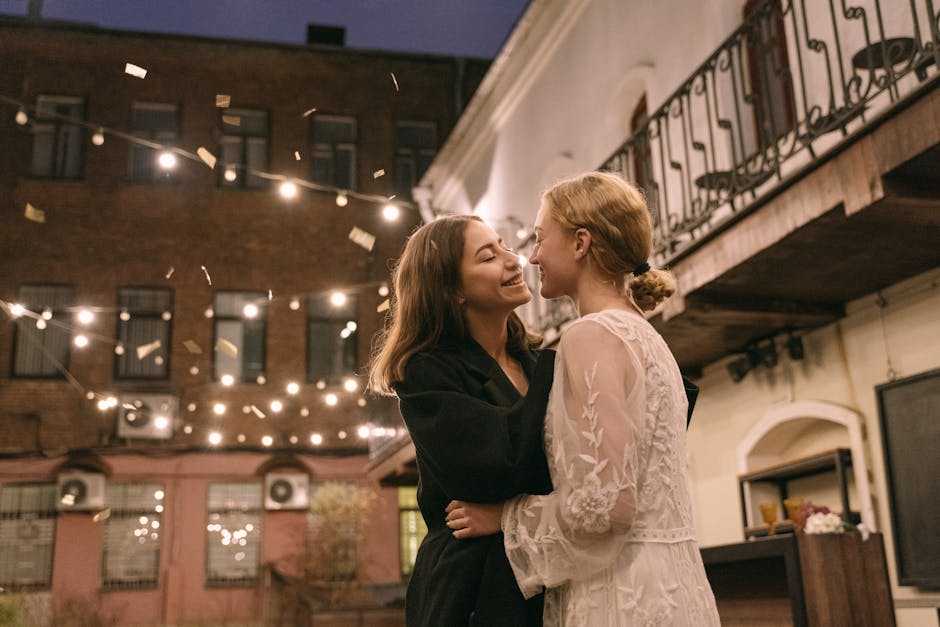Finding the Perfect Wedding Date: A Comprehensive Guide
Choosing a wedding date feels like one of the most significant decisions in the entire wedding planning process. It’s the cornerstone upon which your entire celebration is built, influencing everything from venue availability and guest attendance to seasonal aesthetics and budget. This comprehensive guide will walk you through every aspect of selecting your perfect wedding date, ensuring a stress-free and enjoyable experience.
1. Consider Your Personal Preferences and Priorities
Before diving into logistics, reflect on what truly matters to you and your partner. Do you envision a summer garden party, a cozy winter wonderland wedding, or something in between? Do you prioritize specific dates like anniversaries or birthdays? Understanding your shared vision will guide your search.
- Personal Significance: Are there any anniversaries, birthdays, or other special dates that hold meaning for you as a couple?
- Seasonal Preferences: Do you prefer the warmth and sunshine of summer, the vibrant colors of autumn, the festive cheer of winter, or the fresh blooms of spring?
- Weather Considerations: Be realistic about the potential weather conditions for your chosen season and location. Will outdoor ceremonies be feasible, or do you need a backup plan?
- Holiday Considerations: Avoid major holidays if you want to avoid higher costs and increased competition for vendors.
2. Check Venue Availability
Once you have a few tentative dates in mind, it’s crucial to contact your desired venues. Popular venues book up far in advance, sometimes even a year or more. Securing your venue is a critical first step.
- Create a list of potential venues: Research venues that align with your vision, budget, and guest count.
- Contact venues early: Many venues require deposits to secure your date, so don’t wait too long.
- Consider backup dates: Have a few alternative dates in mind in case your first choice isn’t available.
- Check for venue restrictions: Some venues may have restrictions on specific dates or types of events.
3. Account for Guest Availability and Travel
Your wedding date will inevitably affect your guests’ ability to attend. Consider the time of year, potential holidays, and any significant events that might conflict with your chosen date. You should also think about the travel needs of your guests.
- Consider guest travel: If many guests need to travel, avoid dates during peak travel seasons or major holiday weekends.
- Survey guests (optional): A simple survey can help you gauge the availability of your closest friends and family.
- Offer accommodations information: If your wedding is in a destination location, provide guests with information about local hotels and transportation.
- Give ample notice: Send save-the-dates well in advance to allow guests sufficient time to make arrangements.
4. Factor in Your Budget and Seasonality
Wedding costs can fluctuate significantly depending on the season and demand. Peak wedding seasons (spring and fall) often come with higher prices for venues, vendors, and accommodations. Consider whether your budget aligns with your desired season.
- Off-season weddings: Consider a winter or weekday wedding for potential cost savings.
- Vendor availability: Some vendors may have limited availability during peak seasons, so booking early is crucial.
- Seasonal pricing: Research the average costs for your desired season and location.
- Budget constraints: Adjust your expectations based on your budget and prioritize what’s most important to you.
5. The Importance of Pre-wedding Events and Timeline
Selecting a wedding date also involves thinking about related events such as engagement parties, rehearsal dinners, and bridal showers. Ensure sufficient time to plan and execute all pre-wedding celebrations, and coordinate with guests who need to travel.

6. Legal and Religious Considerations
Check for any legal or religious restrictions or requirements that may impact your choice of date. Some venues or religious institutions might have specific days or times available for ceremonies.
7. Using Online Tools and Resources
Numerous online resources and tools can help you find the perfect wedding date. Wedding planning websites often feature date-checking tools that help you see venue availability and other factors.
8. Don’t Forget the Fun!
While choosing a wedding date is a crucial step, remember that it’s also a celebration of your love. Don’t let the pressure of planning overshadow the joy and excitement of starting your life together.
Frequently Asked Questions (FAQs)
Q: How far in advance should I book my wedding venue?
A: It’s generally recommended to book your venue 12-18 months in advance, especially for popular venues or peak seasons.
Q: What is the best time of year to get married?
A: The best time of year depends on your personal preferences and budget. Spring and fall are popular choices, but winter and summer can offer unique advantages.
Q: What if my chosen date is unavailable?
A: Have a few backup dates in mind to ensure you have options. Be flexible and consider dates that are close to your preferred date.

Q: How can I determine the best date for guest attendance?
A: You can send out a survey to gauge guest availability or consider the timing of major holidays and events that might impact attendance.


